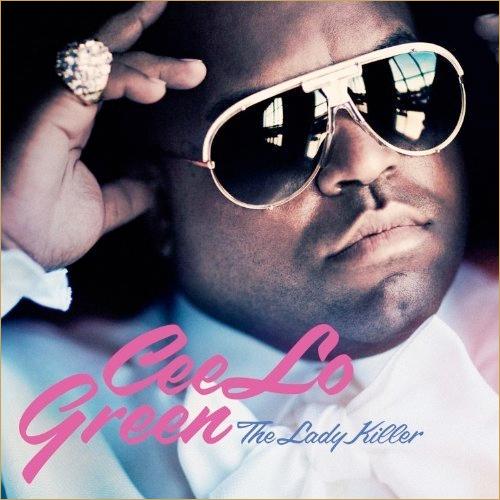
News
Summers Will Not Finish Semester of Teaching as Harvard Investigates Epstein Ties

News
Harvard College Students Report Favoring Divestment from Israel in HUA Survey

News
‘He Should Resign’: Harvard Undergrads Take Hard Line Against Summers Over Epstein Scandal

News
Harvard To Launch New Investigation Into Epstein’s Ties to Summers, Other University Affiliates

News
Harvard Students To Vote on Divestment From Israel in Inaugural HUA Election Survey
Cee Lo Green is a Musical Lady Killer
Cee Lo Green -- "The Lady Killer" -- Elektra -- 4.5 STARS

Sometime towards the end of this summer, Cee Lo Green dropped “Fuck You!” a superlative song whose gleeful video and exuberant bass breaks barged into a generation’s unconscious and now refuse to leave. Within two days of the karaoke-esque original viral video, otherwise dark college dorm-room parties were alight with the bright, white lyrical instruction “UH! WHHHHY? LADY?” (as precocious pre-teen partiers were shouting “forget you” rather than “fuck you” in their best Miley Cyrus) and echoing with slurred cries of “ain’t that some shit.” The song is inescapable, and yet few seem to tire of it. Its successful formula of rooting modern musical techniques in a foot-stomping core of soul is pervasive throughout Cee Lo’s fantastic LP “The Lady Killer.”
The album is based loosely around the concept of Cee Lo Green—previously best known as a member of Gnarls Barkley—in character as “The Lady Killer.” The first track, “The Lady Killer Theme (Intro)” starts with smoky, club-style piano improvisation, over which Cee Lo waxes seductive, setting the album’s tone: extremely imaginative, exciting and hilarious. The first time he speaks, it’s to say “Well hello there”—presumably to all the ladies—as the piano layers billowing jazz chords beneath his womanizing philosophy: “spontaneity is the spice of life, and I’ve indulged quite a bit.” It’s not hard to imagine him in a plush bathrobe, holding a glass of chardonnay in one hand and a cigar in the other, while several beautiful women dress sheepishly in the next room. The rest of the songs focus entertainingly on different aspects in the life of a lady killer, but the album’s concept is secondary to its unstoppable music.
“The Lady Killer” belongs to the same tradition as Janelle Monáe’s hit album, “The Archandroid.” Both are ostensibly of the neo-soul genre, but they derive inspiration from everywhere in pop culture. The synthesizers on Cee Lo’s “Bright Lights Bigger City” are redolent of Kanye West; the drum and bass part are cribbed straight from Michael Jackson, and the lyrics are taken from a classic 1970s disco jam. “The Lady Killer Theme” sounds essentially like the hero-heralding theme from Batman, with its cyclonic strings and spaghetti western guitar.
Cee Lo’s magpie tendency to create a unique style from multiple eclectic influences produces some of the best moments on the album. “It’s OK” begins with a poppy, indie-rock synth line before shifting to a classic soul verse, complete with a rock-solid drum and bass groove, punctuated by sharp jabs of guitar. On the chorus, however, Cee Lo weds these two styles beneath his joyful cries of affection, which are echoed by gospel back-up singers. Eventually, there are rolls of timpani, mournful trumpets and snatches of vibraphone. On paper, this instrumentation makes little sense, but on record it feels undeniably good. This one song packs enough sunshine into 3:46 to sustain any music lover through the winter.
The culmination of the album’s ethos is the warm soul stylings of “Old Fashioned.” The lyrics of this song function as a statement of intent for the whole album: “My love’s old fashioned / But it still works / Just the way it is,” and “Well it’s right on time / And it’s timeless / And it’ll be right here / For always” justify his indiscriminate mixing of classic soul techniques with more modern musical practices. In bringing together such disparate musical elements and rooting them in soul music, Cee Lo proves the relevance of classic musical forms with every upstroke of the guitar and whirl of the organ. In addition to serving as the conceptual core of the album, “Old Fashioned” features jaw-dropping vocal runs from Cee Lo, whose voice is not taken from any particular style, and is certainly timeless.
The last full song of “The Lady Killer” is a cover of Band of Horses’ “No One’s Gonna Love You,” on which Cee Lo turns the mopey, echoing guitars of the original into a clockwork soul groove. He translates the excitable, reverb-drenched vocals of Ben Bridwell into an all-out spectacle of soulful belting. Despite this liberal interpretation of the song, it’s still recognizably a Band of Horses composition. In demonstrating the ease with which a song like “No One’s Gonna Love You” can become a classic soul jam, Cee Lo drives home the message of “The Lady Killer:” music is never contained within its time period or its genre; there’s a little bit of soul music in every indie yelp, and a little bit of the Lady Killer in every one of us—even in the oddly-shaped, unbelievably talented figure of Cee Lo Green.
—Staff writer Benjamin Naddaff-Hafrey can be reached at bhafrey@college.harvard.edu.
Want to keep up with breaking news? Subscribe to our email newsletter.
